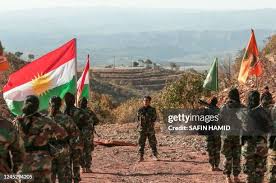Understanding the Kurdish Community and Its Struggles

Introduction
The Kurdish community, a distinct ethnic group primarily found in regions spanning Turkey, Iraq, Syria, and Iran, has been at the forefront of ethnic and political discussions in recent years. Their quest for autonomy and recognition has gained international attention, highlighting the complex dynamics of nationalism, identity, and geopolitics in the Middle East.
The Kurdish Identity
With an estimated population of 30 million, Kurds are the fourth largest ethnic group in the Middle East, yet they remain stateless. Historically, they have faced significant oppression and marginalisation, particularly from the governments of the countries they inhabit. The Kurdish people’s desire for self-determination and cultural rights has led to the formation of political parties and armed groups, most notably the Kurdistan Workers’ Party (PKK) in Turkey, which has been fighting for greater rights and autonomy since the late 20th century.
Recent Developments
In recent months, Kurdish issues have resurfaced on the international stage, particularly in the wake of the ongoing conflict in Syria. The Kurdish-led Syrian Democratic Forces (SDF) have played a pivotal role in the fight against ISIS, and their contributions have shifted global perspectives on Kurdish legitimacy. However, their recent engagements with the Central government of Syria and worries about possible Turkish military incursions continue to threaten their fragile autonomy.
Additionally, the Iraqi Kurdistan Region has shown signs of political instability as regional disputes over oil revenues and electoral issues have caused tensions. The Kurdistan Regional Government (KRG) is facing challenges from both the Iraqi central government and within its political factions, leading to calls for more transparent governance.
Global Impact
The plight of the Kurds resonates beyond their geographical confines, with diaspora communities in Europe and the Americas advocating for their rights. International organisations and human rights groups have drawn attention to human rights abuses against Kurds, especially during military operations in Turkish-held areas and in Iranian border regions. Such awareness has reinforced the need for a peaceful resolution to Kurdish aspirations in the broader context of national identities.
Conclusion
The Kurdish community’s fight for recognition and autonomy remains a significant issue on the global stage. The outcome of their struggles impacts not only the regional stability of the Middle East but also echoes in international discussions on human rights, self-determination, and ethnic identity. As politics in the region continue to evolve, the Kurdish people’s aspirations will undoubtedly play a crucial role in shaping the future of the nations they inhabit.









